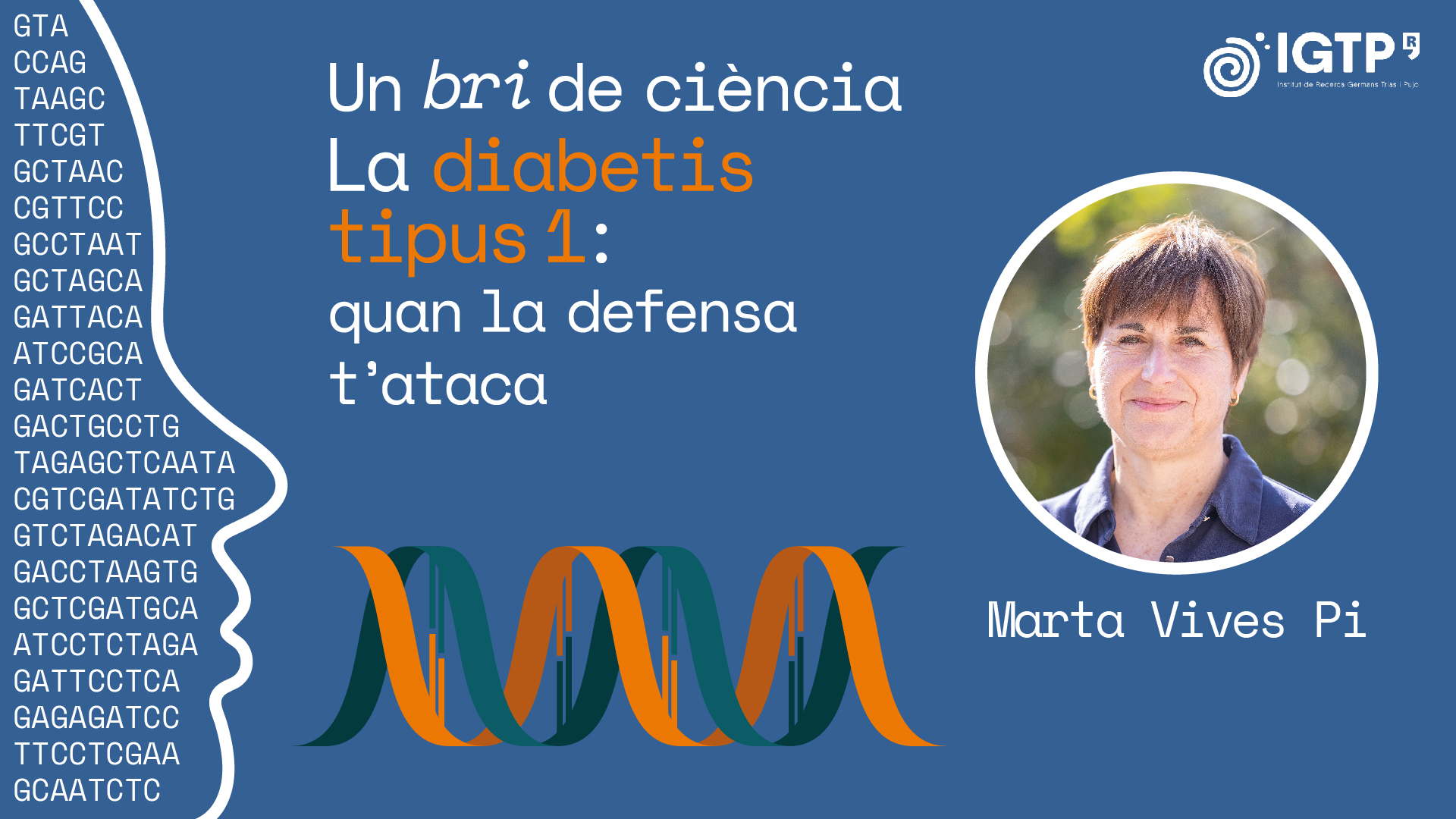The podcast 'Un bri de ciència' explores type 1 diabetes in its second episode

The new episode of the podcast 'Un bri de ciència' is presented under the title "La diabetis tipus 1: quan la defensa t'ataca" (Type 1 diabetes: when your defences attack you). In its second installment, the audio series promoted by the Germans Trias i Pujol Research Institute (IGTP) explains the problems of autoimmune diseases, with an emphasis on type 1 diabetes. Researcher Marta Vives Pi shares her expertise on this disease and the current research in this field. Adding a unique perspective, a patient who was diagnosed just a few weeks ago also takes part, discussing the significant impact this diagnosis has had on her life. The episode has been released in the context of World Immunology Day.
Type 1 diabetes is an autoimmune disease, a condition in which the immune system attacks cells in your own body. Treatment is available to control the disease, but it cannot be prevented or cured. Moreover, type 1 diabetes is chronic and directly affects the quality of life of those affected, usually from a very early age. Given these circumstances and the increase in the number of cases in recent years, investing in research is key.
The episode is developed through the explanations of Dr Marta Vives Pi, leader of IGTP's Immunology of Diabetes research group and scientific director of the spin-off Ahead Therapeutics. The first few minutes put into context autoimmune diseases, a group of diseases that affect one in ten people in developed countries. Afterwards, type 1 diabetes is discussed in depth, covering how it works, historical aspects and putting patients at the centre of the discussion.
To talk about the challenges experienced by those impacted, we conversed with Alba from the IGTP's Innovation Unit, who discovered she had type 1 diabetes roughly a month ago. She describes the ways in which her life has transformed since that time and how she has managed the complications associated with the condition.
Finally, Dr Vives Pi reviews the research lines of her group and explains how one of them, an immunotherapy based on nanoparticles, has led to the creation of a spin-off. The future looks bright, although there is still a lot of work to be done. Basic and translational research are bearing fruit and it remains to be seen what advances will be made in the coming years and whether it will be possible to develop definitive care.
You can listen to the episode on Spotify, iVoox, Google Podcasts and Apple Podcasts.
